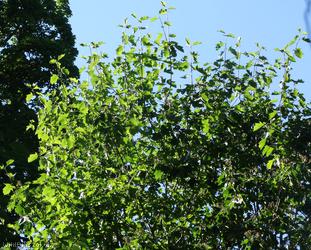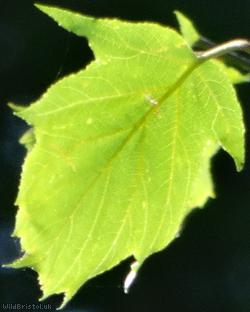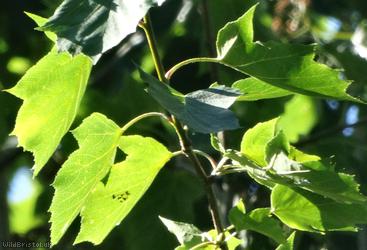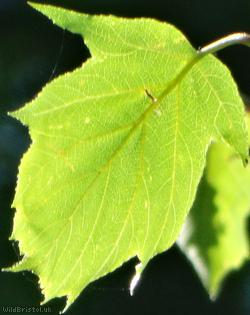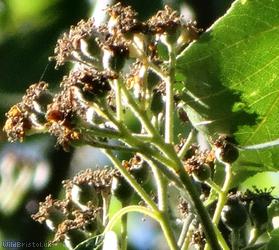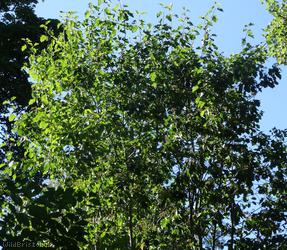Wild Service Tree - Sorbus torminalis
Favourite Photos
Species Description
Widespread throughout England and Wales but Rare and in decline. It is on the Red List. Habitat includes: Clay and lime-based soils in places such as woodland, hedgerows, dense scrub, parks (planted) etc. The presents of this tree is a sign of ancient woodland. Height: Up to 25 m. Flowers: May to June. Deciduous Perennial. Life Story: birds in particular Wood Pigeon are needed to soften the seed for propagation. It can also propagate via suckers. Flower type: Hermaphrodite. Wildlife value: many insects are attracted by its flowers, many bird species eat the berries including Wood Pigeon, Song Thrush, Black Bird etc, leaves are eaten eaves by Bucculatrix bechsteinella and Phyllonorycter mespilella Moth caterpillars. History: Chequers (the fruit), are said to taste like dates and were given to children as sweets during WW I and II. They can be made into an alcoholic drink and were used to flavour other alcoholic drinks, such as whisky. It is thought they influenced the naming of 'Chequers Inns', although it's not known which came first. Diseases: silver leaf disease and Fire-blight. Other names include: Chequer (s) Tree, Chequers, Serb (Sussex), Sorb-tree (old name).
